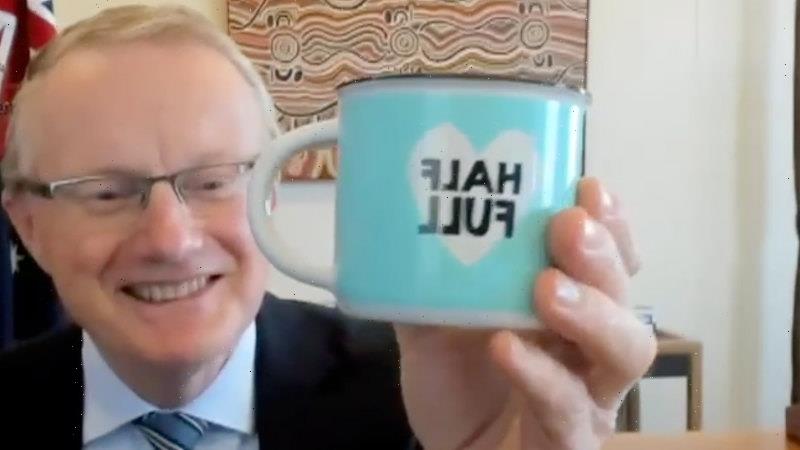For our free coronavirus pandemic coverage, learn more here.
Reserve Bank governor Philip Lowe says the Australian economy will recover quickly from a significant hit caused by pandemic-related lockdowns across the country while playing down expectations of higher interest rates before 2024.
Dr Lowe, addressing an Anika Foundation charity function on Tuesday, said the economy was likely to contract by at least 2 per cent, or even “significantly” more, in the September quarter due to restrictions across NSW, Victoria and the ACT.
RBA governor Philip Lowe believes the Australian economy will rebound out of current lockdowns.
But while there would be a large hit, a recovery built on consumers, many of whom would tap built-up savings, should ensure a strong rebound.
“On the economy, our central message is that the Delta outbreak has delayed – but not de-railed – the recovery of the Australian economy,” he said.
“The outbreak is a significant setback for the economy and it has introduced an additional element of uncertainty about the future. But there is a clear path out of the current difficulties and it is likely
that we will return to a stronger economy next year.”
Dr Lowe said the economy should start re-growing in the December quarter, with the key factors being the level of vaccination across the community and the easing of restrictions.
The re-opening of the economy would be a catalyst for stronger growth led by cashed-up consumers.
“While it is hard to be precise about the pace and timing of this bounce-back, in the RBA’s central scenario, economic activity is expected to be back on its pre-Delta track by the second half of next year,” he said. “Most people are keen to do the things they used to, and they will spend if they have the opportunity and the income.
“While the increase won’t be as large as that of last year, it will mean that many people have more money in the bank than they did pre-Delta.”
The Australian Bureau of Statistics will this week release the August jobs report, with analysts expecting an increase in the unemployment rate from the current 4.6 per cent.
Dr Lowe said the bank believed hours worked were likely to fall by between 3 and 4 per cent in the September quarter, with the jobless rate tipped to reach the “high fives” for a short period of time.
He said many small and medium-sized businesses were facing difficult conditions, noting some were in a “wait, survive and see” mode due to large falls in revenue.
“Government assistance is helping, but the longer they have to wait before reopening, the more difficult things will become and the greater the potential damage to this important part of the economy. For some businesses, there is a limit to how long they can wait. So the sooner we can open safely the better,” he said.
The bank has been clear in saying it does not believe it will lift the cash rate, currently at 0.1 per cent, until 2024. But financial markets are pricing in a rate rise by the end of next year.
Dr Lowe said given such stagnant wages growth, it was unclear why markets believed the RBA would move on rates any time soon.
“These expectations are difficult to reconcile with the picture I just outlined and I find it difficult to understand why rate rises are being priced in next year or early 2023,” he said. “While policy rates might be increased in other countries over this timeframe, our wage and inflation experience is quite different.”
The Morning Edition newsletter is our guide to the day’s most important and interesting stories, analysis and insights. Sign up here.
Most Viewed in Politics
From our partners
Source: Read Full Article

